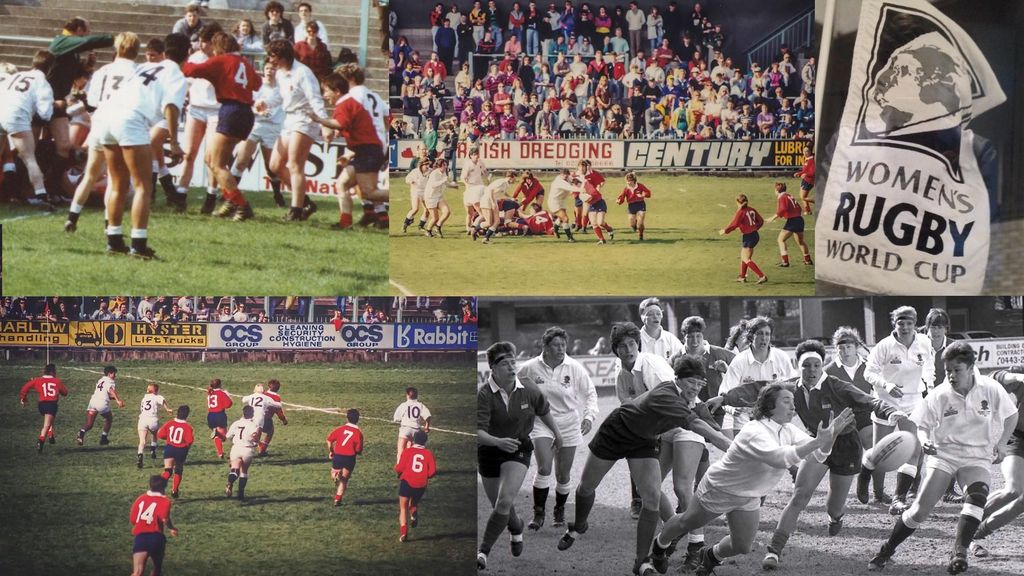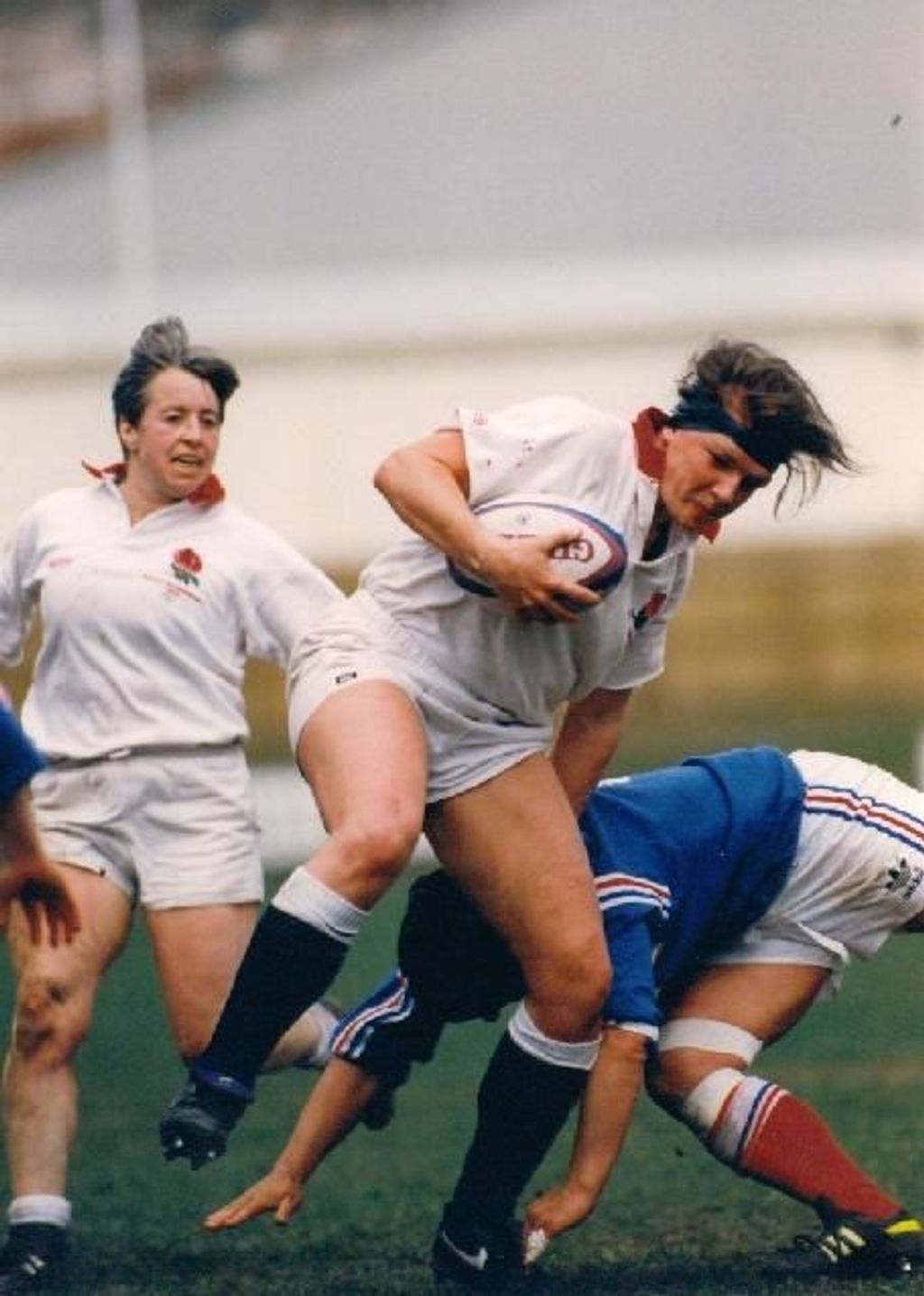It might now be 29 years since the USA won the first women’s Rugby World Cup final in Cardiff but there remains a sense of ‘what might have been’ among England’s class of 1991.
Fresh from victory over France in the semi-finals, England had taken a 16th-minute lead at Cardiff Arms Park on 14 April, 1991, courtesy of a penalty try conceded by USA back-row Claire Godwin and converted by Gill Burns.
But by the admission of those present, the USA proved too strong, and streetwise, for their English opponents.
A second-half brace of tries from Godwin and a late score from scrum-half Patty Connell wrapped up a 19-6 victory for a team whose spine remained from the invincible Wiverns tour of the UK and France in 1985.
“Looking back we gave them opportunities,” number eight Burns recalled. “We should have been able to win that game.
“We were better than them really but they just kept going, they were relentless and [had a] sharpness of thought.”
Quick thinking

Alongside England vice-captain Carol Isherwood and Saracens flanker Janis Ross, Burns was pitched into an intense battle with USA back-row trio Godwin, Morgan Whitehead and Kathy Flores.
For Isherwood, the nature of Godwin’s second try summed up the difference in sharpness between the two sides on the day.
It arrived when the USA took a quick lineout and the unmarked back-row “delightedly collected the ball and went through unopposed,” according to Western Mail reporter David Roberts.
“I just remember in the middle of the game when it was a lineout, people were looking at our team and had sort of switched off a little bit,” Isherwood said.
“I was going, ‘Watch out, they’re going to take a quick lineout!’ and I remember running in and before we knew it they’d thrown the ball in and they’d scored and that was sort of the end of our opportunity.”
‘Very emotional and very proud’
Defeat was particularly tough for England hooker and member of the Women’s Rugby World Cup Organising Committee (WRWCOC), Sue Dorrington to take.
As the WRWCOC’s commercial manager, Dorrington had worked tirelessly alongside chairwoman Deborah Griffin, Alice Cooper and Mary Forsyth to ensure the tournament went ahead at all.
On top of her commitments with the WRWCOC the Minnesota-born forward had a full-time job but her dedication to play for England was such that she worked with a personal trainer and sports psychologist in the year leading up to the tournament. While playing, Dorrington also sought coaching tips from Dick Best and then-England men’s hooker, Brian Moore.
“I just remember being very emotional and very proud, and just wanting us to win so badly,” Dorrington recalled about lining up against women she had played with in the USA.
“Personally, I thought we were ready but I don’t think some of the players were ready mentally for that big game.
“I don’t think everybody was ready mentally for raising the level because we’d never run out in a stadium with that many people before.”

Organisers had needed a crowd of 6,000 in Cardiff for the tournament to break even and although the attendance was around half that on the day, that still represented a good turnout for the women’s game at that time.
‘We wanted it to be a huge spectacle'
England centre Sam Robson, who also served as merchandising co-ordinator for both the Rugby World Cup and the Women’s Rugby Football Union, recalled telling Sunday Times journalist Stephen Jones about her hopes for the final on the eve of the match.
“I remember saying to him that I wanted the game to be a kind of a pinnacle of good-quality women’s rugby,” she explained.
“I wanted it to be a real showcase to show women playing at their best, and to me that was almost more important than winning.
“Because women’s rugby was going to be judged for the next five years on that game and if it was a dire game of everybody dropping [the ball] and being absolutely rubbish it would be really bad for the game.
“Don’t get me wrong, I absolutely wanted to win but I was also conscious in my Women’s Rugby Football Union hat and as a player of trying to get the two things together. We wanted England to win but we also wanted it to be a huge spectacle.”
Having achieved at least half of that aim, Robson hung up her playing boots following the final. Burns and Dorrington would both get revenge three years later – albeit the latter as a non-playing reserve – as England, with World Rugby Hall of Fame inductee Isherwood on the coaching staff, beat the USA 38-23 in the final in Edinburgh to win RWC 1994.
On the role her experience in 1991 played in that eventual success, fellow World Rugby Hall of Fame inductee Burns added: “[I was] devastated because even then I knew we could have won that game, frustrated at the way we handed points to them.
“But it just made me think if this happens again, I want to be involved. So, I just wanted to carry on and have another crack at it.”






